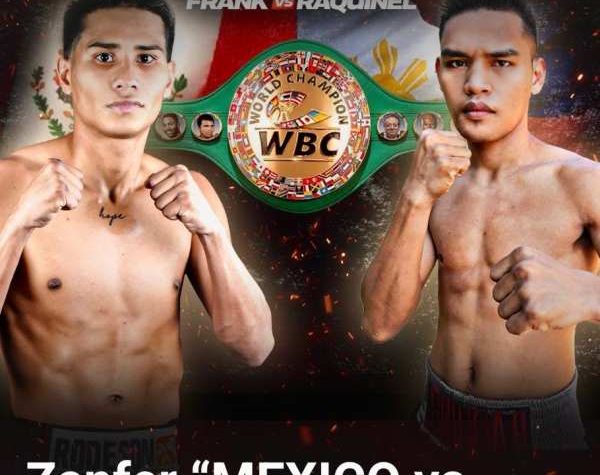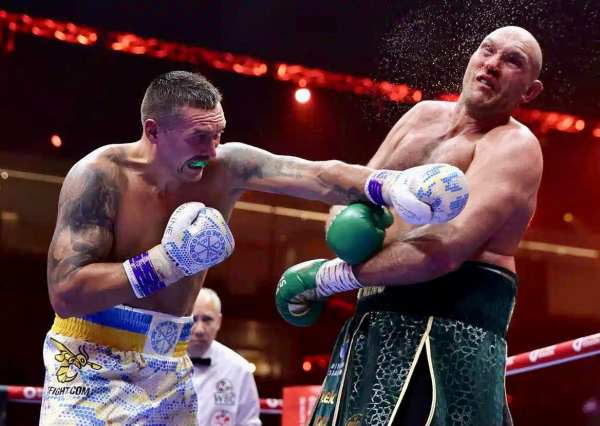
Bloodyelbow.com
While Deiveson Figueiredo put the flyweight division that much deeper into a state of purgatory on February 29th in Norfolk, one of the main story lines to come out of the event was focused not on a fighter, but a referee instead. Kevin MacDonald was the third man in the cage between Ion Cutelaba and Magomed Ankalaev in their main card light heavyweight tilt. And he’s now the man receiving much of the post-event backlash for his decision to stop that fight just 38 seconds into round 1.
IT’S NOT TOO LATE TO WATCH ‘UFC ON ESPN+ 27- #UFCNorfolk – ‘Benavidez vs. Figueiredo’Stream all the fights broadcast LIVE — don’t miss a single second of face-punching action! Plus, you get access to the best of the UFC Archives & more!SIGN UP NOW!
On the receiving end of a couple sharp strikes, Cutelaba began to wobble his head and torso. The action continued for about 10 seconds, with the ‘Hulk’ wobbling throughout, before MacDonald made the decision to step in and wave off the bout. Cutelaba immediately snapped out of his supposed daze, and argued that he was fine. But, the official result was recorded as a TKO loss.
On a recent episode of his Weighing In podcast, with former Strikeforce champion Josh Thomson, OG MMA referee ‘Big’ John McCarthy gave his thoughts on MacDonald’s “horrible” decision. In his opinion, it seems MacDonald got the call entirely wrong.
“Okay, so here’s—I want to ask you a question, you’re a fighter, okay,” McCarthy said to Thomson. “You have been in there, and you have seen guys that are hurt. And then you have seen guys that are acting like they’re hurt. What tells you the difference? What is it that tells you the difference? C’mon, there’s things.”
“Absolutely! It’s their base,” McCarthy continued, after Thomson noted that a fighters legs are a key tell to whether or not they’re injured. “So if you are the referee, you see this guy starting to [jerks around wildly] do this thing. I don’t look at this [points to head], I look to see, how is his base? Because that’s going to tell me. I’m going to look and say, ‘That didn’t look like it should have hurt you. It could’ve – I’m not saying it can’t – but it didn’t look like it should.’ So instead of doing this, where I go to what we call ‘the micro’ – I start to look at his face – I step back and look at the macro. I look at the entire package. And I look at the base of the fighter. That tells me everything. It tells me: look at how solid his base is. He’s not hurt. You do not have a solid base when you are hurt.”
McCarthy noted that he’s talked to MacDonald in the past about when to stop a fight, and how fighters look when they’re truly hurt bad, compared to when they’re just acting hurt to fool their opponents. And he added that, even if Cutelaba was hurt, early in the bout is the best time for a fighter to potentially completely recover from getting buzzed.
“You’re gonna let ‘em go,” McCarthy said. “You’ve got to let this guy go, because he’s throwing back! He’s fighting! He never hit the fucking ground, he never fell into the fucking fence, he never did any stanky-leg thing. He fucking wiggled his upper body. Guys wiggle their fucking upper body all the time. What are you watching! And then you stop the fight? And as you said, he’s lucky he didn’t get clocked. Because you could see immediately, Ion was fine. He’s like, ‘What are you!?’ He’s trying to lull this guy in, he’s taking shots, I’m not saying he’s not—the right hand that started it, started the concern? It touched him, but I didn’t think it really hurt him. He started to do his little thing like [wiggles]. You could see that it froze him for a second, just that half-a-second. So he felt it. But, watch his base, it’s fine.”
For his part, Cutelaba has said that he’ll contest the result with the Virginia Boxing, Martial Arts, and Professional Wrestling Advisory Board. But, so often the end result in these kinds of appeals is that the commission has to rely on the narrative of the referee in the cage at the time. If MacDonald sticks to his feeling that he made the right call, chances are that the result would stand. Still, McCarthy’s opinion has carried some serious weight with commissions in the past, perhaps his support here will help bolster Cutelaba’s case.





More News
Casimero TKO’s Sanchez in 1st round
Raquinel wins WBC Continental Americas super flyweight title
Frank vs Raquinel on ABEMA LIVE PPV